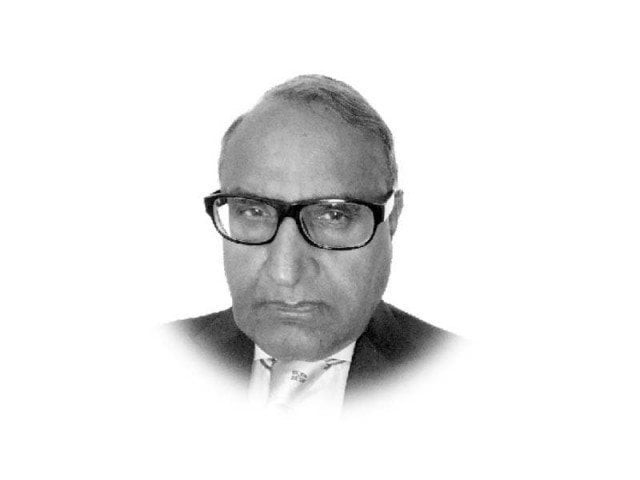Embracing parallel governance
The status quo reasserts with all its force by labelling the efforts as instruments of favouritism, corruption

At long last, the mega rail project costing $6.8 billion has been approved. More significant, it will be executed not by the lackadaisical Pakistan Railways, but a brand new ML-1 Authority. The idea comes from the experiment of the CPEC Authority that bypassed the Planning Commission, long dead but still casting its shadows, and the administrative hurdles created by the Water, Power and Communications Divisions. Its ex-khaki Chairman tweets every next day that CPEC is alive and kicking. Beyond the federal jurisdiction, the NDMA Chairman in khaki has taken over the hugely neglected task of drainage in Karachi. National Command and Operation Centre (NCOC) and the National Coordination Committee (NCC) on Covid-19, also hybrids, have already replaced the Inter-Provincial Coordination Division and the Council of Common Interests (CCI). The establishment of these parallel organisations and forums suggests that the government has given up on institutional reform. The status quo cannot deliver and all attempts to change it is a waste of what is left of the political time.
When it comes to change, the bureaucratic elite is the hardest nut to crack. The number of administrative divisions remains around 40, the same as it was before the 18th Amendment, despite the abolition of the Concurrent List. So is the number of secretaries. Under this very regime, more than this number have been promoted to Grade 22. They have succeeded in deflecting institutional reform to a few innocuous changes in rules of business and what essentially are economy measures — shedding 71,000 vacant posts, abolition of 100 odd spurious organisations and reducing the burden of unfunded pensions.
This is not the first time that an elected government has been forced into institutional parallelism to achieve what it promised to voters. In the 1970s, Zulfikar Ali Bhutto could not make the bureaucracy work for his progressive agenda, despite dismissals of many foot-draggers and allowing lateral entry of trusted specialists. He had to raise parallel organisations such as the Board of Industrial Management and the Pakistan Banking Council to go ahead with his programme. The recent example is that of Shehbaz Sharif in Punjab. His penchant for infrastructure and other pet projects and the desire for speedy implementation led to the creation of as many as 70 public sector companies. He discovered that the same procrastinating bureaucrats transformed into dynamic leaders when assigned a specified task with the perks and privileges of the private sector, without compromising links to their elite service group. This solved the problem that even the best and the brightest from outside of the government fail to work their way through a change-averse system of governance. However, a unique factor in the success of project implementation and service delivery was the personal dynamism of Shehbaz Sharif. The nationwide surveys carried out annually by PILDAT on the quality of governance rated Punjab the highest. In the Supreme Court hearing on the case against these companies, Shehbaz Sharif rested his case on good governance. The plea was not accepted by the honourable court and the Buzdar government has since disbanded most of these companies.
The common thread in the past experiments in institutional parallelism is the failure to outlast the tenure of the initiating government. The status quo reasserts with all its force by labelling the efforts as instruments of favouritism, corruption and personal aggrandisement. In the case of PTI, the experiment is a civil-military hybrid. It takes a cue from the PILDAT’s surveys’ recurrent indication that the military is the most trusted institution in the public eye. Whether the hybridisation increases its life expectancy, only future can tell.
Published in The Express Tribune, August 7th, 2020.
Like Opinion & Editorial on Facebook, follow @ETOpEd on Twitter to receive all updates on all our daily pieces.














COMMENTS
Comments are moderated and generally will be posted if they are on-topic and not abusive.
For more information, please see our Comments FAQ